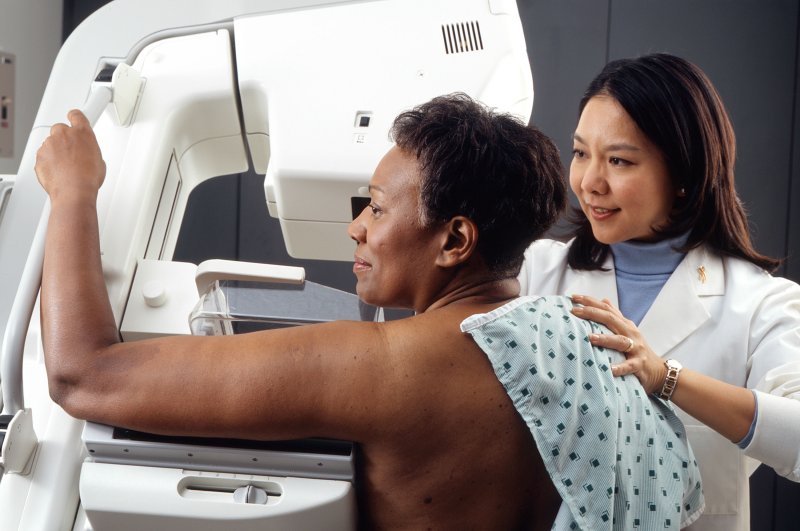If men or women previously had a false-positive breast or prostate cancer screening test, they are more likely to obtain future recommended cancer screenings, according to an analysis of medical records. Photo by Rhoda Baer/Wikimedia Commons
April 23 (UPI) -- Men and women who previously had a false-positive breast or prostate cancer screening test are more likely to obtain future recommended cancer screenings, according to an analysis of medical records.
Researchers analyzed 10 years of electronic medical records data to analyze the association between a previous false-positive cancer screening test result and future participation in routine cancer screenings. The findings were published Monday in Cancer, a journal of the American Cancer Society.
Overall, about 50 percent to 60 percent of women who get annual mammograms will have a false positive, or screening result that turns out to be wrong, over the course of ten years. For regular stool tests, the false positive rate is 23 percent and for men's regular prostate cancer screenings it is 10 percent to 12 percent.
The researchers noted this may affect individuals' willingness for future cancer screening -- they may be more diligent or more reluctant about another test.
The findings conflict with other research, however, as previous studies have suggested the complete opposite -- including one that suggested women who get a false positive on their first mammogram could wait longer to get their second.
"We don't know why the observed pattern occurred," Glenn Taksler, a researcher at Cleveland Clinic who led the new study, said in a press release. "False-positives are a limitation of the technology that we use to check for cancer."
For the new study, records of 92,405 people between the ages of 50 and 75 were analyzed.
Researchers found that women with a false-positive mammogram were at least 43 percent more likely to get more screenings, and were 25 percent to undergo future colorectal cancer screenings.
Men with a false-positive prostate cancer screening were least 22 percent more likely to obtain future colorectal cancer screenings, researchers report.
Among men and women, the percentages were greater based on the number of false-positive results, with one exception: women with false-positive fecal occult blood testing, a type of colorectal cancer screening, were less likely to continue breast cancer screening.
"False‐positive cancer screening tests are a troubling yet inevitable facet of cancer screening," Drs. David C. Johnson and Joann G. Elmore of the UCLA School of Medicine wrote in an editorial published with the new study. "Although false‐positive examinations are known to lead to short‐term anxiety and additional testing, to the authors' knowledge little data have existed regarding the long‐term impact of these false‐positive experiences on future cancer screening behavior until the work by Taksler et al."
In a 2017 study, researchers found the trauma of receiving a false-positive result from a mammogram may lead many women to delay or skip their next screening. Researchers in that study analyzed data from more than 741,000 screening mammograms on nearly 262,000 women in the Chicago area, finding the average delay in having a second mammogram screening was 13 months for those who had a false-positive result on their first mammogram.
Another 2017 study, conducted by Penn State University researchers, found women who receive a false-positive mammogram result are more likely to start taking anxiety or depression medication. The rate was 10 percent to 20 percent higher than patients who received an immediate negative result.
"Hopefully, over time, the technology will improve so that patients don't have to deal with as many false-positives," Taksler said.















